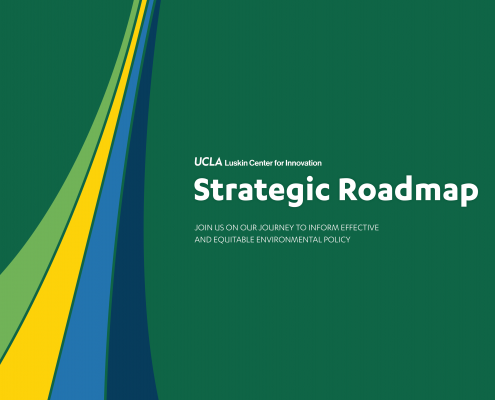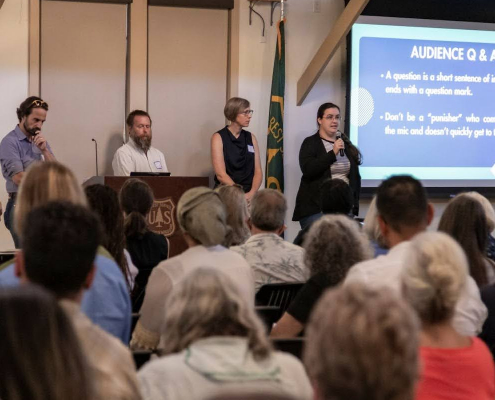Trees on K-12 school campuses can improve quality of life for students by providing shade and reducing temperature in outdoor areas. In California, school grounds often primarily consist of impervious surfaces, such as asphalt, which can absorb and re-radiate heat, thereby raising local temperatures and decreasing thermal comfort. Policymakers, funders, and advocates increasingly recognize the importance of trees and other vegetation in schoolyards to support the social, physical, and emotional well-being of children, and also provide rich outdoor learning environments.
To achieve these benefits, trees need to survive and grow to maturity. Urban tree systems are vulnerable to a variety of stressors, including extreme heat, and sustained tree health requires maintenance over time. It is important to identify strategies for landscape maintenance from the perspectives of principals, teachers, facilities staff, and parents, with particular attention to issues of equity, engagement, collaboration, and labor.
This project consists of several interlocking objectives:
- Investigate policies that have created and reinforce extensive impervious cover on school grounds, and describe land cover patterns on school campuses
- Assess tree microclimate benefits, and develop future scenarios for such benefits based on varying tree configurations
- Assess the vulnerability of campus tree species to climate change
- Characterize landscape management perspectives and needs from school principals, teachers, and parents, as well as facilities staff at school and district levels, and nonprofit greening partners
This project will be carried out in collaboration with researchers from UCLA, UC Berkeley, UC Davis, and the USDA Forest Service, and colleagues from CAL FIRE and Green Schoolyards Americas.
Research Team
- UCLA: Kirsten Schwarz, Elizabeth Riedman, Melody Ng, Jared Coffelt, Samantha Venegas, Steve Jang, Amelia Najar, Cailyn Schmidt
- UC Davis: Alessandro Ossola, Luisa Velasquez-Camacho
- UC Berkeley: Iryna Dronova, Eric Romero
- USDA Forest Service, Pacific Southwest Research Station: Lara Roman, Natalie van Doorn, Sam Muir
- ORISE Fellow: Levon Bigelow
Core Partners
- Green Schoolyards America: Sharon Gamson Danks, Alejandra Chiesa, Rachel Pringle, Mikaela Randolph, Lauren McKenna, Ayesha Ercelawn
- USDA Forest Service, Region 5: Miranda Hutten, Laura Wolf, Pauline Ordonez, Michelle Carr
- CAL FIRE: Walter Passmore, Julia Gowin, Henry Herrera, Jazmyn Winczner, Rachel O’Leary
Products
Funding Acknowledgements
This project is made possible with funding from the USDA Forest Service Region 5 State, Private, and Tribal Forestry, as well as the USDA Forest Service Pacific Southwest Research Station, and the UCLA Luskin School of Public Affairs. The study is affiliated with the Los Angeles Center for Urban Natural Resources Sustainability.
Photo credit: Green Schoolyards America, picture of César E. Chávez campus, Oakland Unified School District




